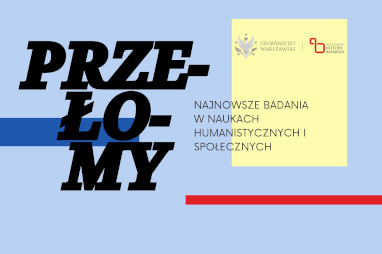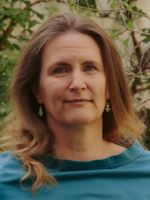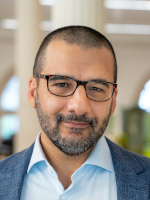On the culture of impact and speech technologies – guest lectures during the “Breakthroughs” conference

07 10 2025
As part of this year’s edition of the conference “BREAKTHROUGHS. The latest research in the humanities and social sciences” we will hear from two exceptional guests.
The first day of the conference, October 16, will open with a lecture by Esther de Smet, research manager and specialist in impact in the social sciences and humanities from the University of Ghent entitled: “Co-creating a healthy impact culture”.
 There is no ‘one size fits all’ way to do impact, nor is there a single best institutional structure to deliver it. Impact operates at all levels of an organisation and across multiple job roles. However, irrespective of type, size or funding, impact requires institutions to identify meaningful ways to connect research to the real world, and support the knowledge, skills, resources, and structures needed to deliver it. Impact expertise is vital, but impact cannot be the responsibility of one person; it’s only achievable through teamwork, partnerships and connected actions. Fundamental to this are the development of impact literacy and a commitment to responsible research assessment.
There is no ‘one size fits all’ way to do impact, nor is there a single best institutional structure to deliver it. Impact operates at all levels of an organisation and across multiple job roles. However, irrespective of type, size or funding, impact requires institutions to identify meaningful ways to connect research to the real world, and support the knowledge, skills, resources, and structures needed to deliver it. Impact expertise is vital, but impact cannot be the responsibility of one person; it’s only achievable through teamwork, partnerships and connected actions. Fundamental to this are the development of impact literacy and a commitment to responsible research assessment.Esther de Smet’s lecture will take place on Thursday, October 16, 2025, at 9:30 a.m. in ROOM (AULA) 0.410 (ground floor) in the Modern Languages building (ul. Dobra 55) at the University of Warsaw.
The second day of the conference, October 17, will open with a lecture entitled “Speaking Machines and Living Languages” by Prof. Matt Coler, an expert in voice technology and linguistics, and director of the MSc Speech Technology program from the University of Groningen.
 Artificial intelligence has revolutionized speech synthesis, yet this breakthrough excludes all but a handful of major languages. Through an interactive audio history spanning from Von Kempelen’s 1791 mechanical apparatus to today’s neural architectures, this talk traces how each era reimagined what speech fundamentally is: from physical resonance to encodable information to learnable patterns. Live demonstrations show how small regional languages can achieve natural synthesis, challenging assumptions about data requirements. But technical solutions raise more in-depth questions: What transforms when voice moves from embodied cultural practice to decontextualized acoustic reproduction? When lived stimulation becomes technological stimulus? These questions reveal why speech technology increasingly requires methodological contributions from social sciences and humanities: not as auxiliary concerns, but as perspectives on what breakthrough actually means in a field dominated by engineering.
Artificial intelligence has revolutionized speech synthesis, yet this breakthrough excludes all but a handful of major languages. Through an interactive audio history spanning from Von Kempelen’s 1791 mechanical apparatus to today’s neural architectures, this talk traces how each era reimagined what speech fundamentally is: from physical resonance to encodable information to learnable patterns. Live demonstrations show how small regional languages can achieve natural synthesis, challenging assumptions about data requirements. But technical solutions raise more in-depth questions: What transforms when voice moves from embodied cultural practice to decontextualized acoustic reproduction? When lived stimulation becomes technological stimulus? These questions reveal why speech technology increasingly requires methodological contributions from social sciences and humanities: not as auxiliary concerns, but as perspectives on what breakthrough actually means in a field dominated by engineering.Prof. Matt Coler’s lecture will take place on Friday, October 17, 2025, at 9:00 a.m. in ROOM (AULA) 0.410 (ground floor) in the Modern Languages building (ul. Dobra 55) at the University of Warsaw.
Registration for the conference is open
until Friday, October 10, 2025 via